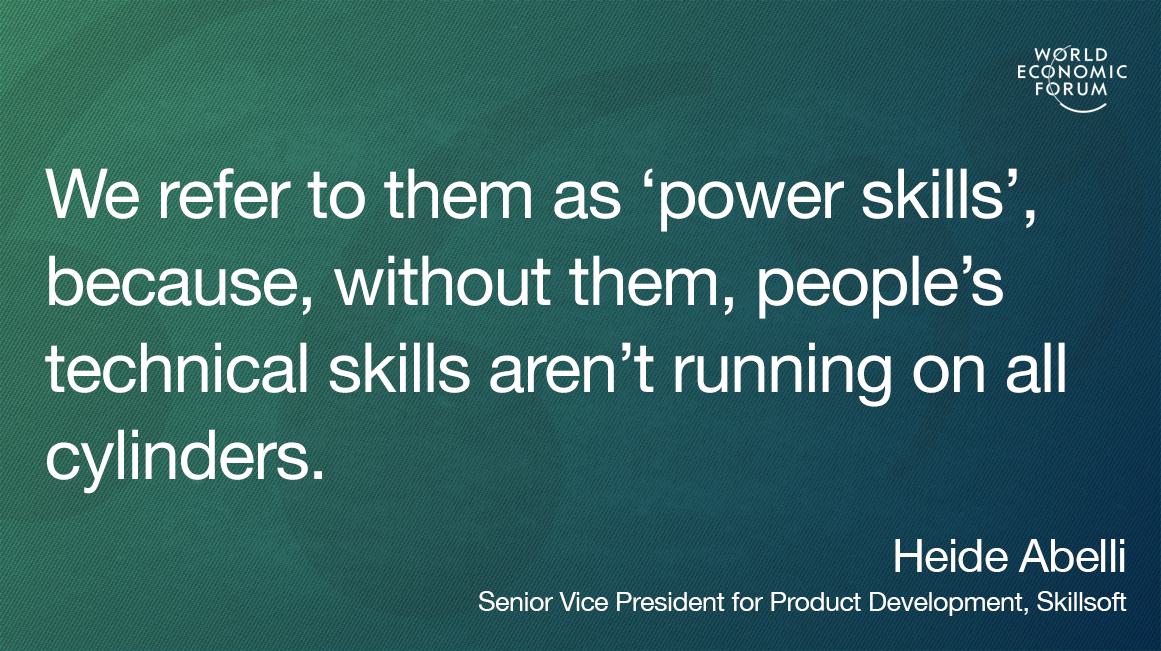People Power Skills - What Are They?
Developing Your People Power Skills

It's time that human resources professionals started prioritising skill development within their teams. Recent research shows that three in 10 business leaders need to invest in essential human-centric skills such as resilience, adaptability and relationship-building. Recent research from Harvard Business Review shows that companies seeking a new CEO are placing less importance on operational and financial acumen but instead are looking for leaders with exceptional social skills. Businesses must embed these essential power skills into their workforce and understand the significance that they bring to people and organisations.
What are Power Skills?
In the Pulse of the Profession 2023 report from the Project Management Institute (PMI), the top-rated power skills cited were strategic thinking, empathy, problem-solving and communication to encourage effective leaders and successful contributors to deliver business outcomes. The rebranding of these essential human centric skills indicates that global businesses are advancing in professional development.
We are entering an era of people-focused policies, processes and outcomes to ensure future businesses thrive. Power skills will become a secret weapon. Nine in 10 employees stated in the PMI report that power skills are critical to helping them work smarter. However, only 30 per cent of businesses do not prioritise any development in this space due to perceived costs and value. Technical skill training is still considered more important than enhancing power skills. The report will start to quantify the benefits effectively and highlight the need for such training before companies fall behind. The report demonstrates the immense value that power skills have on a company's bottom line.
AI is here to stay
By encouraging power skills, companies will likely see high benefits in realisation maturity management, higher agility, and project management maturity. It's particularly important as there is an increase in the automation of workforces. McKinsey estimates that within the next 10 years, approximately 800 million people could be displaced from their jobs. Differentiating humans from robots is vital. Ben Breen, the Global Director of Construction and Vice President of Asia Pacific, PMI, explained, “Technical skills have just become par for the course. But if you’re putting all your emphasis on that and then stopping, you’ll fall behind”. He continued, “It’s just a matter of determining the things that are easy to automate. How can I personally upskill myself to make sure I’m not sitting in that category of being replaced? And what are the human things I can do that AI can’t? Be smart about the changes that are inevitably coming”.
Breen discussed the importance of starting the process at the interview stage. Instead of asking, 'what did you achieve?' it's critical to ask, 'how did you achieve it?'. He explained that human resources leaders would elicit a much more insightful response and help them understand how adding power skills could add value to their business and the training requirements. By taking the lead in developing programmes and resources, they can help employees develop their communication, collaboration and problem-solving skills. By working with their managers, they can ensure that their power skills are effectively evaluated and rewarded. Human resources teams should ensure that these skills are a priority for their businesses to remain competitive in the future. They must look ahead and identify what the organisation needs and monitor how their employees feel by creating a positive work environment. By proactively investing in upskilling teams, they will remain cutting-edge in their field to ensure they are competent and successful in their roles and remain competitive in the marketplace.
Communication
Human resources professionals and other leaders should develop their ability to communicate verbally and in writing effectively.
Leadership
Develop leadership skills by setting a positive example, giving constructive feedback, provide relevant training, guidance and direction.
Collaboration
Share ideas, give and receive constructive feedback and resolve any conflicts.
Problem-solving
Develop problem-solving skills through various techniques and strategies. Practice brainstorming and use analytical thinking to evaluate problems and develop solutions.
Negotiation
Develop negotiation skills by learning how to listen, identify needs, and create win-win solutions. Learn to manage conflict and work collaboratively to reach agreements effectively.
Conflict Resolution
Learn to manage conflicts and disagreements and be familiar with different conflict resolution strategies.
Emotional Intelligence
Develop emotional intelligence skills by learning to identify and manage emotions by practising empathy, mindfulness, and self-awareness.



